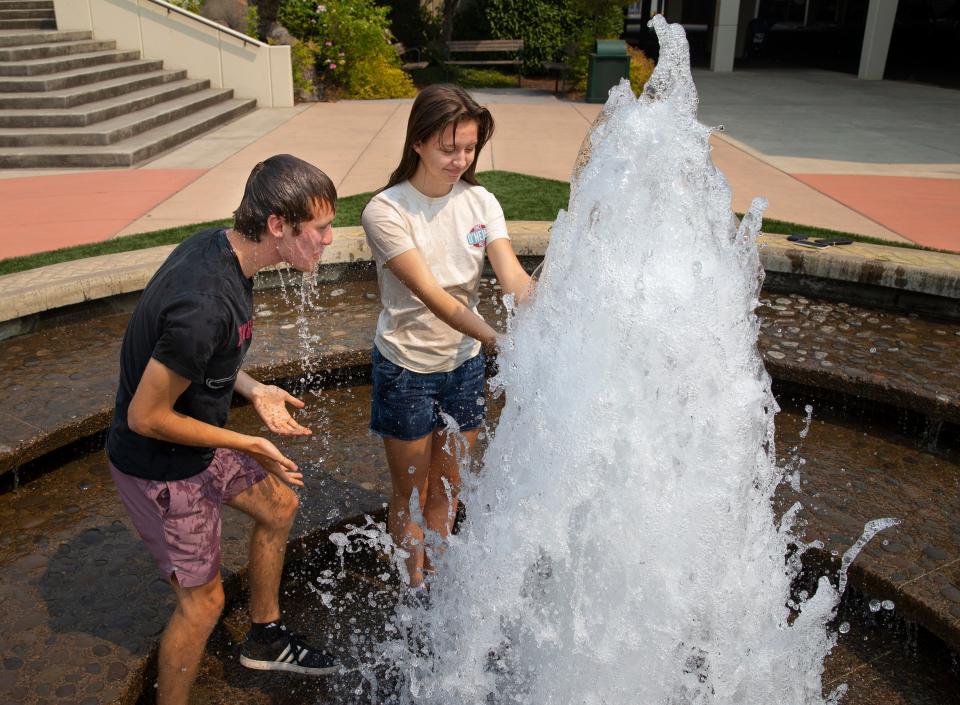Oregon poll: At what temperature do you set your AC thermostat?
Summer is in full swing and heatwaves are coming for much of the U.S., including Oregon.
Air conditioning hasn’t been a staple in buildings across the Pacific Northwest thanks to a historically mild climate but after recent years involving summer heat domes, more folks are turning to AC to seek relief from the heat.
This begs the question: What temperature is the most popular for Oregonians to set their AC units to?
Heat waves and rising energy demands
During heat waves, energy demands can increase as more electricity is needed to cool spaces.
Last year, during an August heat wave with temperatures over 100 degrees for four consecutive days, the Eugene Water and Electric Board called on customers to cut their energy use wherever possible. The response from utility customers included setting thermostats a couple of degrees higher, turning off or delaying the use of appliances that draw heavily on electricity and avoiding straining the electrical grid in the early evening hours, typically from 5 P.M. to 9 P.M. These energy-saving tweaks saved as much energy as shutting off 10,000 to 15,000 window AC units across Eugene, according to an EWEB press release.

EWEB Chief Energy Resources Officer Brian Booth said EWEB is fortunate to have flexible energy resources such as hydropower that allow the utility provider to meet energy demands across a variety of circumstances, from summer heat waves to winter freezes. While EWEB is well-positioned to handle the upcoming energy demand, the Pacific Northwest region needs to plan well in advance for energy needs in the coming years.
“In the short term, we have sufficient supply to get through this heat wave,” Booth said.
How cool are people keeping?
The Environmental Protection Agency’s Energy Star program recommends people set their thermostats to 78 degrees upon waking to balance comfort with energy efficiency. However, a 2021 Consumer Report found that the average responses from participants with centralized AC set the temperature at 71 degrees, both during the day when they were home and at night while sleeping. Energy Star’s recommendation is for AC units to be set at four degrees warmer while sleeping and at seven degrees warmer when folks are out of the home.
For those many Oregonians without AC in their homes or without access to adequate shelter, cooling centers and public spaces are a much-appreciated respite from the sweltering heat. Information on open cooling shelters is available on Lane County’s website at lanecountyor.gov/cooling where a list of available cooling centers is updated for this week’s expected extreme heat. Tips to stay cool are also listed.
While some people may be heading to bodies of water or joining in on summer fun to fend off the heat, others may be experiencing health effects like dehydration, heat strokes and other heat-related illnesses.

Just like it takes a whole community to cut back on energy use, it takes a community of support to get through extreme weather events.
“During the 2023 heat wave, we had a tremendous response from our community. People rallied together to cut back energy usage when we needed to and achieve something that no one could have done alone,” Booth said.
“The enthusiasm makes me excited to see how demand response programs can play an increasingly important role in our efforts to better align electricity demand with supply.”
Hannarose McGuinness is The Register-Guard’s growth and development reporter. Contact her at hmcguinness@registerguard.com.
This article originally appeared on Register-Guard: What is the best AC thermostat temperature to use in Oregon?

